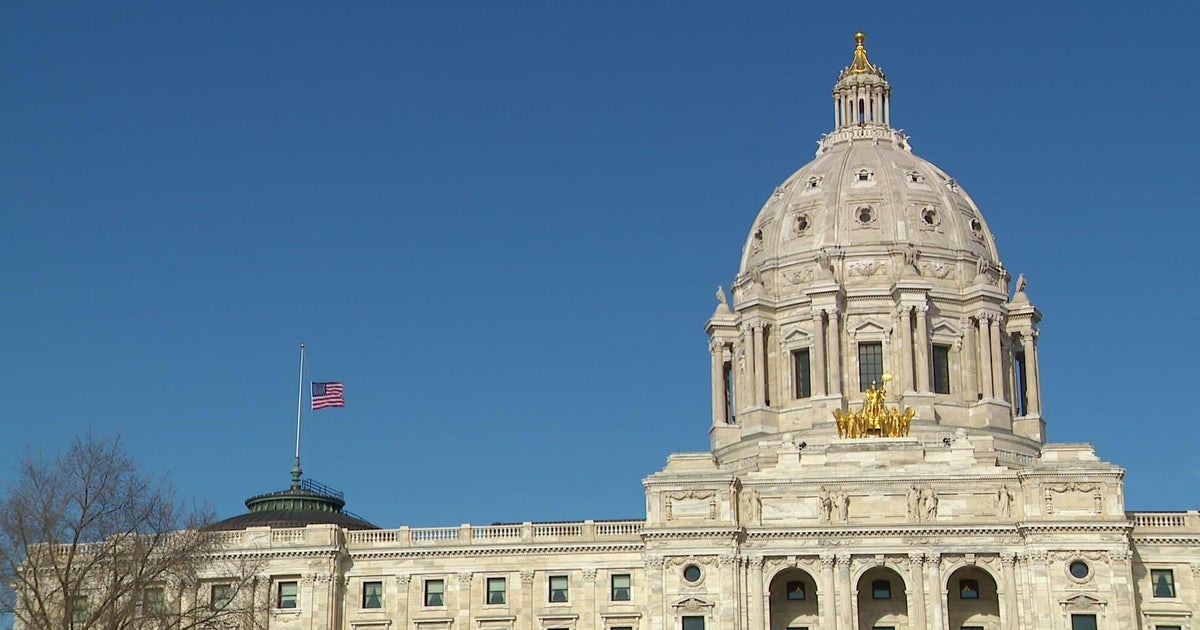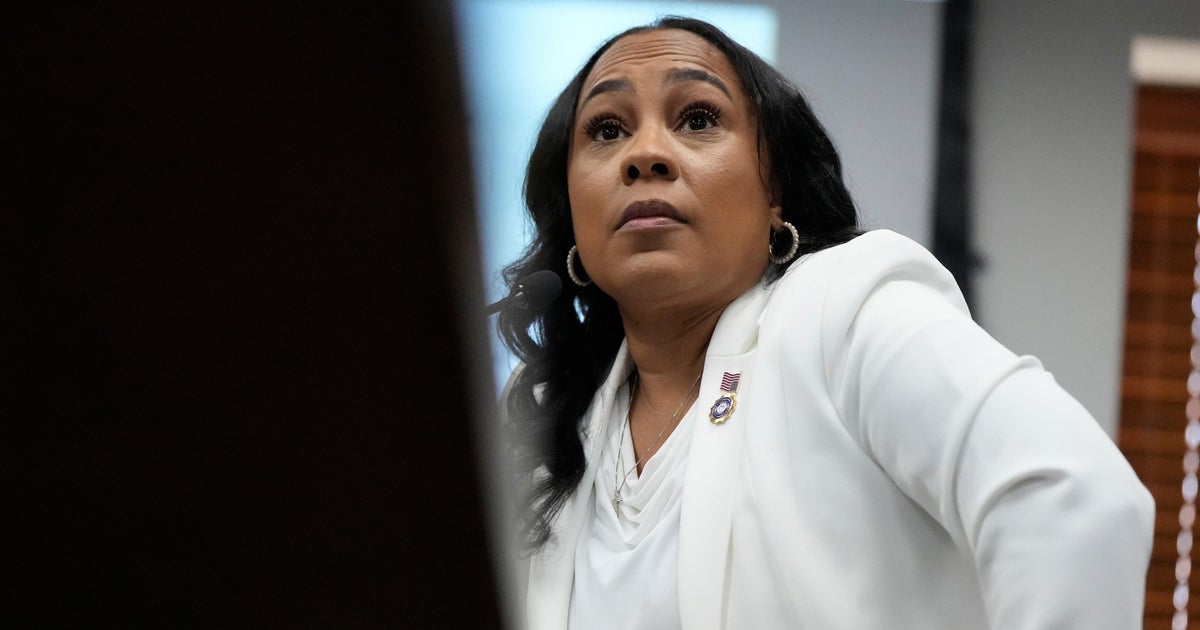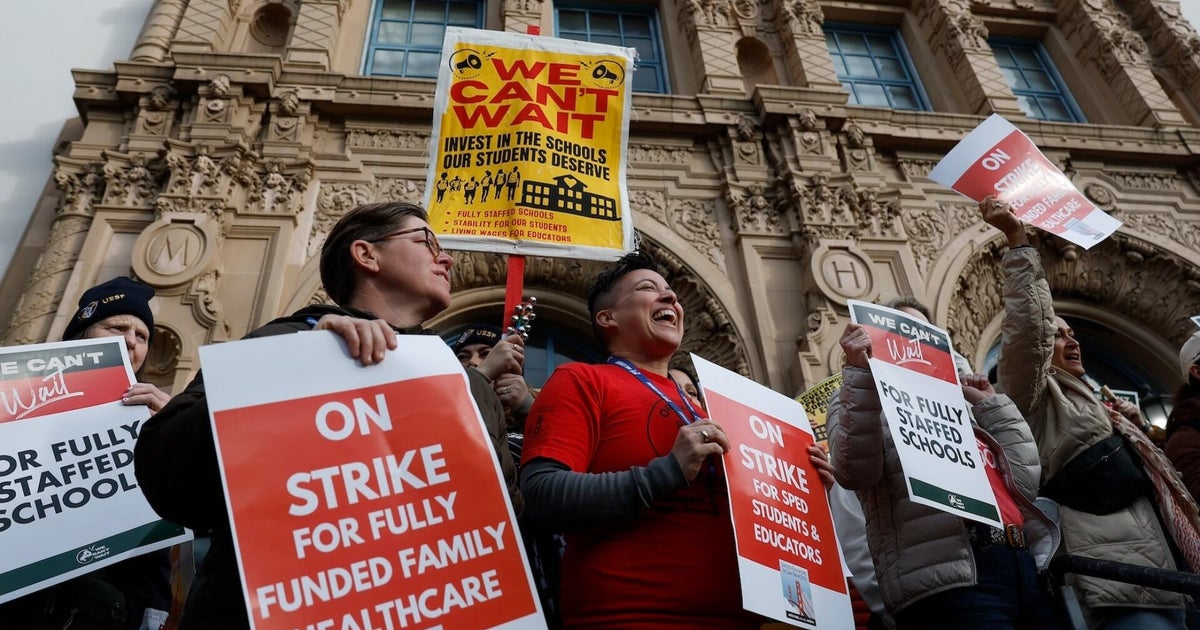Challenges To 2011 Florida Legislation Still In Courts
TALLAHASSEE (CBSMiami/AP) – When the Florida Legislature convenes for the first session of 2012 on Tuesday, there are several high-profile measures passed last year are still being challenged in the courts.
The targets include 2011 legislation on elections, public employee pensions, prison privatization, welfare drug testing, guns and teacher pay and tenure — about a dozen cases in all.
Most are far from being resolved and some likely will end up in the Florida Supreme Court.
Ron Meyer, a lawyer involved in several of the cases, said he's never seen as many new laws challenged in a single year. He attributes it to overwhelming one-party rule. Besides a Republican governor, the House and Senate had veto-proof GOP majorities as a result of gains in the 2010 election.
"This has been unusual," Meyer said. "You see an exercise of power that perhaps goes over the top."
Meyer said Republicans not only are in charge but they're unified. He noted Democrats often were split when they had similar control years ago.
Senate President Mike Haridopolos said he is not surprised the bills are being challenged, "but we felt it was the right policy direction to go."
"When you take on major policies ... , you're going to upset the apple cart, the status quo," the Merritt Island Republican said.
Howard Simon, executive director of the American Civil Liberties Union of Florida, said simply believing something is the right thing to do is not a standard for good legislation.
"It's symptomatic of a Legislature that is hostile to constitutional values," said Simon, whose organization is challenging multiple new laws and executive orders issued by Gov. Rick Scott.
The measure drawing the most legal attention with five cases is the new election law.
Four of its provisions are being reviewed by a three-judge U.S. District Court panel in Washington, D.C.
Those sections cut the number of early voting days, put new restrictions on organizations that conduct voter registration drives, require voters who change out-of-county addresses at the polls on Election Day to cast provisional ballots and reduce the shelf life of citizen initiative petition signatures from four to two years.
Opponents, including the ACLU, League of Women Voters and National Association for the Advancement of Colored People, argue the law is designed to suppress voting by minorities, the elderly and young people who tend to vote Democratic.
Republicans who backed the law say it will prevent election fraud that the critics say has been virtually nonexistent.
The court will determine whether those provisions comply with the federal Voting Rights Act. The Justice Department has cleared the rest of the law, but Florida Secretary of State Kurt Browning chose to have the court, instead, rule on the most controversial provisions. Browning, a Scott appointee, said he wanted the decision to be free of "outside influence."
The court, though, is getting plenty of outside help. More than two dozen individuals and groups have intervened against the provisions. A ruling is not expected until April at the earliest.
The League of Women Voters, with an assist from the ACLU, has filed a separate federal lawsuit in Tallahassee against the voter registration provision. It says filing requirements, fines and a two-day deadline for turning in registration applications are so onerous it has suspended registration efforts in Florida. The case is set for hearing Jan. 26.
A federal judge in Miami dismissed another challenge by the ACLU but left the door open for filing it again later.
Former Republican state Sen. Nancy Argenziano, now a congressional candidate, is challenging another provision of the election law in state Circuit Court in Tallahassee because it is preventing her from running as a Democrat. That's because the law requires candidates to swear they had not been a member of another political party for at least 365 days before qualifying.
Argenzino, also a former public service commissioner, registered under the tiny Independent Party when she quit the GOP. She cannot run as a Democrat because the deadline for changing parties under the new law was last June. No hearing date has yet been set.
Circuit Judge Terry Lewis in Tallahassee upheld another provision of the election law that lets the attorney general fix titles or ballot summaries of state constitutional amendments proposed by the Legislature if a court rules they are misleading or inaccurate. Courts previously have just removed such measures from the ballot.
Lewis rejected an argument by Meyer that the rewrite provision violates constitutional separation of powers among the branches of government. Meyer represented the Florida Education Association, the statewide teachers union, and others, including school administrators and some clergy. They have not yet decided whether to appeal.
In the same case, the plaintiffs challenged the ballot summary of an amendment that would repeal Florida's ban on financial aid to churches and other religious organizations. Lewis agreed the summary was misleading but suggested a rewrite that Attorney General Pam Bondi accepted. Meyer's clients did not challenge the revised language.
The outcome of the pension plan lawsuit could blow a hole in the current state budget and widen a $2 billion gap lawmakers are anticipating in spending plan for the next budget year that begins July 1.
The new law requires state and county employees, including public school teachers as well as some city workers, to contribute 3 percent of their pay to the Florida Retirement System. It saved hundreds of millions for state and local governments, but Meyer argues the law violates constitutional contract, property and collective bargaining rights.
Meyer argued last October on behalf of public employees and their unions including the FEA.
Circuit Judge Jackie Fulford has not yet ruled, but her decision is expected to be appealed regardless.
Meyer also is representing the FEA in another Tallahassee case challenging the constitutionality of a law that requires merit pay for teachers and eliminates tenure for new hires. It has not yet been heard.
The state is appealing a November injunction issued in Orlando by U.S. District Judge Mary Scriven. It blocked implementation of the drug testing requirement for welfare applicants until Scriven makes a final ruling in the case. An appellate court in Atlanta will review the injunction.
Bondi is appealing Fulford's decision in the prison privatization case that the state's plan is unconstitutional because it was part of the annual budget instead of a stand-alone law.
The provision would privatize about 30 state prison facilities in South Florida. Bondi appealed at the request of legislative leaders after Scott declined to do so. The case now is in the 1st District Court of Appeal in Tallahassee.
Two gun laws also have been challenged.
U.S. District Judge Marcia Cooke in Miami issued a preliminary injunction blocking a first-in-the-nation law restricting what doctors can say about guns to their patients. The Brady Center to Prevent Gun Violence and physician groups that are challenging the law as well as the state are seeking summary judgments. Cooke has not yet set a hearing date.
Palm Beach County commissioners are challenging a law that lets the governor remove local officials from office and strips them of immunity from lawsuits for enacting local gun laws. The case was filed in state Circuit Court in West Palm Beach. No hearing has yet been set.
(TM and © Copyright 20121 CBS Radio Inc. and its relevant subsidiaries. CBS RADIO and EYE Logo TM and Copyright 2012 CBS Broadcasting Inc. Used under license. All Rights Reserved. This material may not be published, broadcast, rewritten, or redistributed. The Associated Press contributed to this report.)







